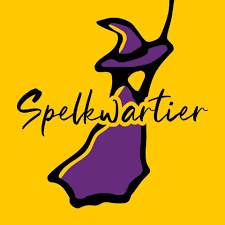You might be familiar with a lot of the French resistance stories from World War II. However we must not forget the efforts of the Dutch during the war: Orange Shall Overcome!
Background
My favorite subjects in high school were civics, geography and history. The importance of these subjects should not be underestimated; especially from history, people can learn a lot about today and the future. I like to think that I grew up in a time of peace and freedom, but things like war, oppression, geopolitical tensions and racism are still prevalent in our world.
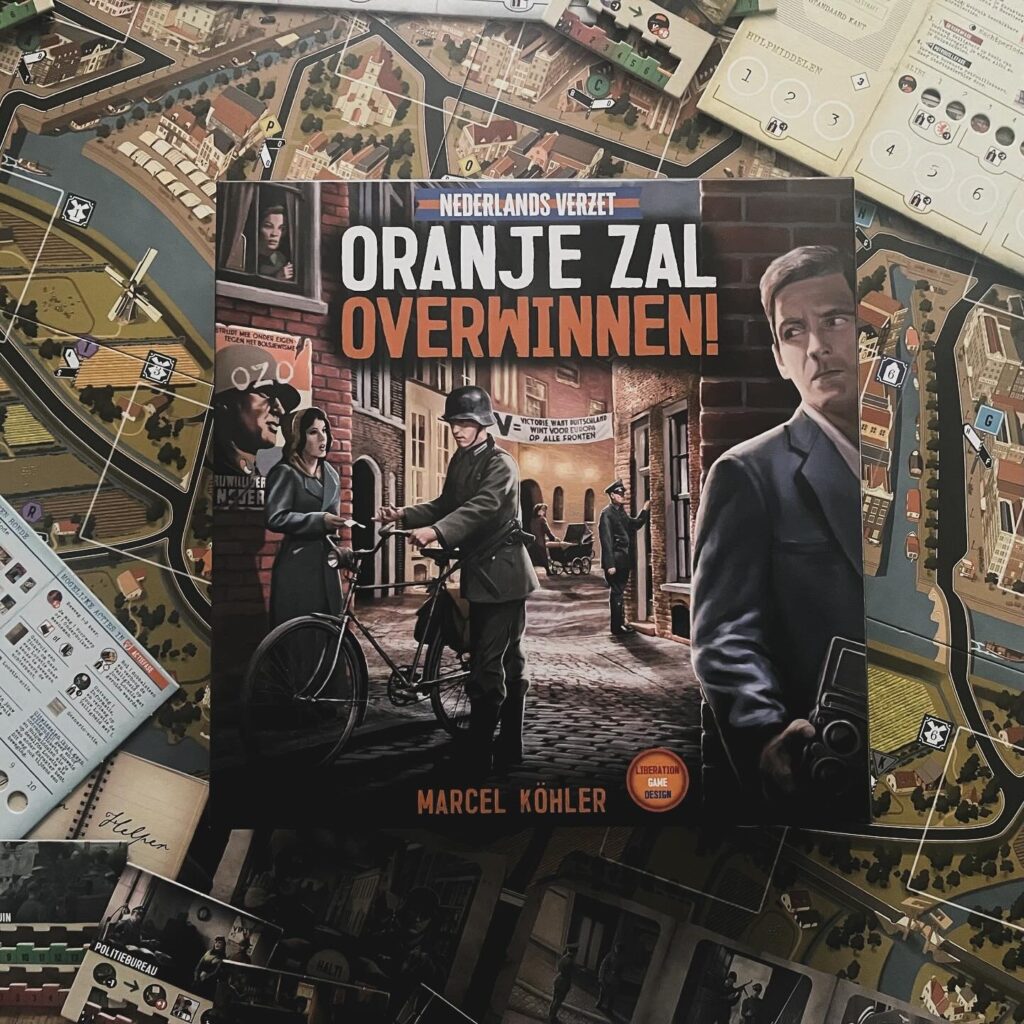
In addition to my interest in history as a subject, I grew up listening to my grandparents’ and great-grandparents’ stories about their experiences during World War II. These included small-scale personal stories. For example, my grandfather and grandmother were madly in love and tried to meet with each other out despite the tensions, risks’ and curfews. Because of her “Jewish appearance,” my grandmother was also harassed by the oppressor. One story that has particularly stuck with me is the provision of a hiding place for Jews to protect them from the German occupiers and their collaborators. You could call it an act of resistance. Resistance stories from the war made an impact on me. Selfless acts or acts committed out of principles by resistance heroes with an indispensable impact on freedom, but with possible ruthless consequences if these heroes were caught. Whether it was distributing newsletters, extracting secret information and passing it on to the the resistance or friendly allied forces or helping many (possible) victims of the war.
More often I hear sounds that the (collective) awareness of the events during World War II is fading. Concerns are also raised that there would be an increase in trivializing or denying the Holocaust. Education plays an important role in historical awareness, and fortunately there are multiple ways to educate someone about history.
For example, you can also learn through play, and Dutch Resistance: Orange Shall Overcome! is a great educational achievement. So is it an educational game? No, not necessarily. It is a cooperative game where players assume the role of different resistance fighters from the Netherlands during World War II. The game offers different scenarios with different challenges that allow players to immerse themselves in history in a very thematic way. OZO (the Dutch abbreviation of Orange Shall Overcome; Oranje Zal Overwinnen) is a true tribute to the Dutch resistance with great respect for the theme and history. Education is a natural result thereof.
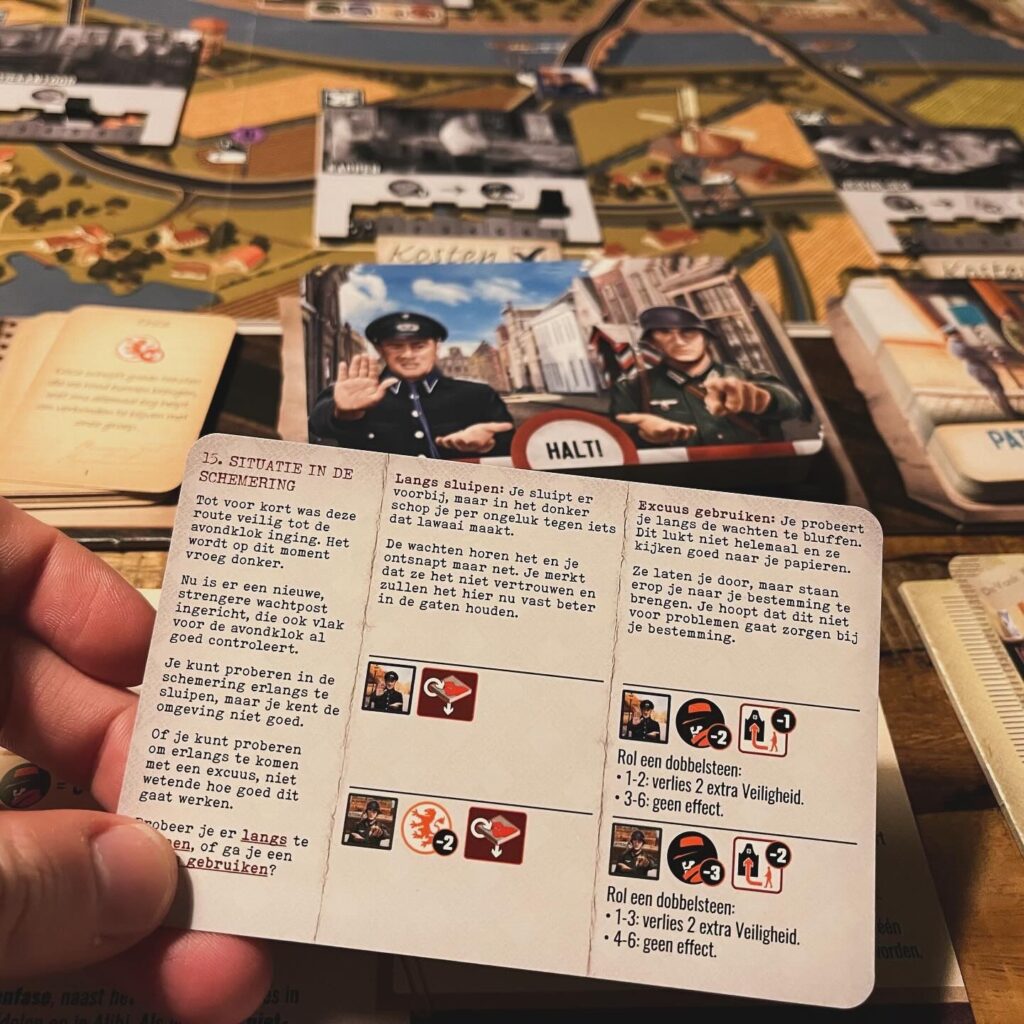

Each scenario in the game has its own set-up and unique set of rules, including a specific win condition to successfully complete the scenario. If our resistance fighters have lost their alibi or collective morale or the occupier has become too strong (the pile of relevant cards has run out and x number of rounds have ended) then the game is lost.
Setup
At the beginning of the game, players choose a scenario to play. I won’t go into too much detail here, partly to avoid spoilers, but each scenario has some additional or different rules to set up the game.
Players lay out the board, lay out the various locations as indicated on the scenario, choose a difficulty level and place a number of policemen and soldiers on the board based on that difficulty level, place markers to indicate morale and safety of the locations, and shuffle all the cards to then place them in the appropriate spots on the board.
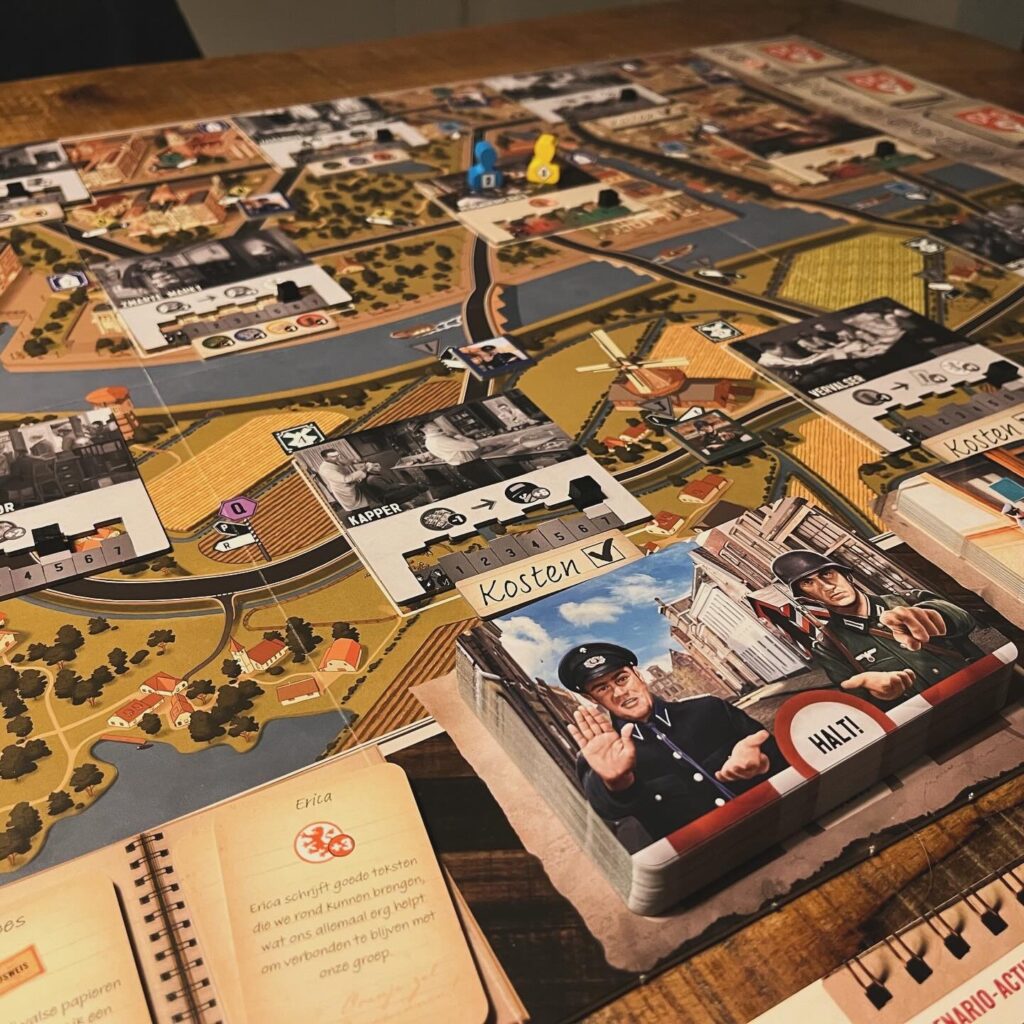
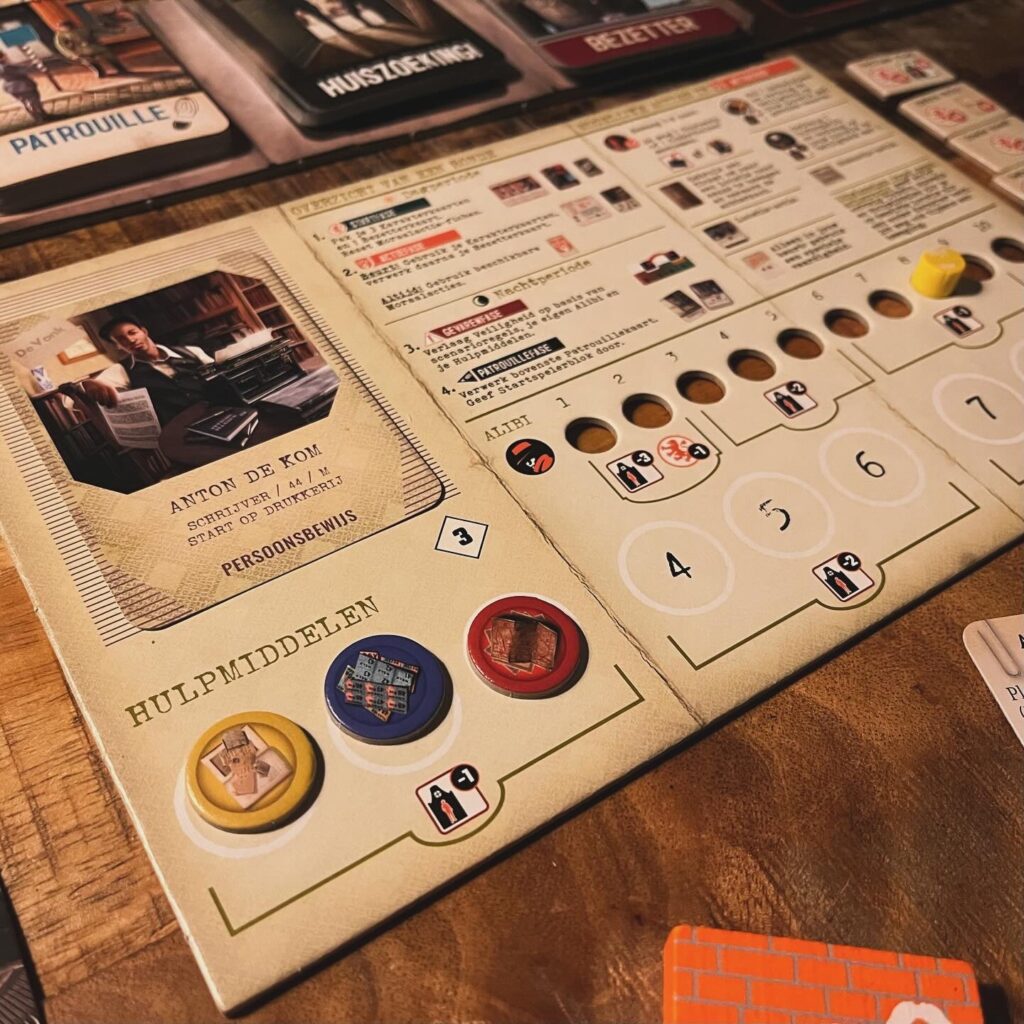
Each player is given a player board and a meeple in their chosen color, and each player chooses a resistance hero. Each character is based on a real resistance hero, and the history of these characters is summarized on their character cards. Each hero has three unique action cards and, along with the incorporation of the theme and history into the gameplay, these character cards are the beating heart of Orange Will Overcome. In fact, each character has a unique trait and therefore makes a unique contribution to the collective gameplay.
Gameplay
Each round consists of a day period and a night period. The day period consists of a start phase and an action phase. During the start phase, the active player takes a card from the occupier pile and takes it into their hand along with their character cards. During the action phase, the active player uses their character cards to perform actions and then unwinds the drawn occupier card. Players can take several standard actions thanks to action points. For example, they can move their character around the board, perform actions from the location where they are present, obtain information and more. The character cards indicate if players can perform a standard action with an action point and / or if they can also perform a special action as described on the card. With actions, players will, for example, collect resources, morale, safety and other things and perform specific actions to achieve the goals of the scenario. Depending on players’ morale, they have a number of morale action tokens (also action points) with which they can perform an action at any time.
Each time a player moves and passes a soldier or a policeman, a Halt! card must be drawn and read aloud. Each card shows an event and a choice is given. The active player then makes the choice. Each choice has an outcome and an impact on the game. The choices offered are often dilemmas and often times reside in a gray area. Are you going to help someone or are you opt to avoid risk in order to protect yourself and “the greater good”? These cards offer thematic and interesting variation in the course of the game. Very often this card has the effect of intensifying the surveillance of routes, lowering morale and security, and lowering the alibi of the character in question. ID’s allow players to move through a guarded route unscathed, and a ticket allows players to take a longer and safer journey.

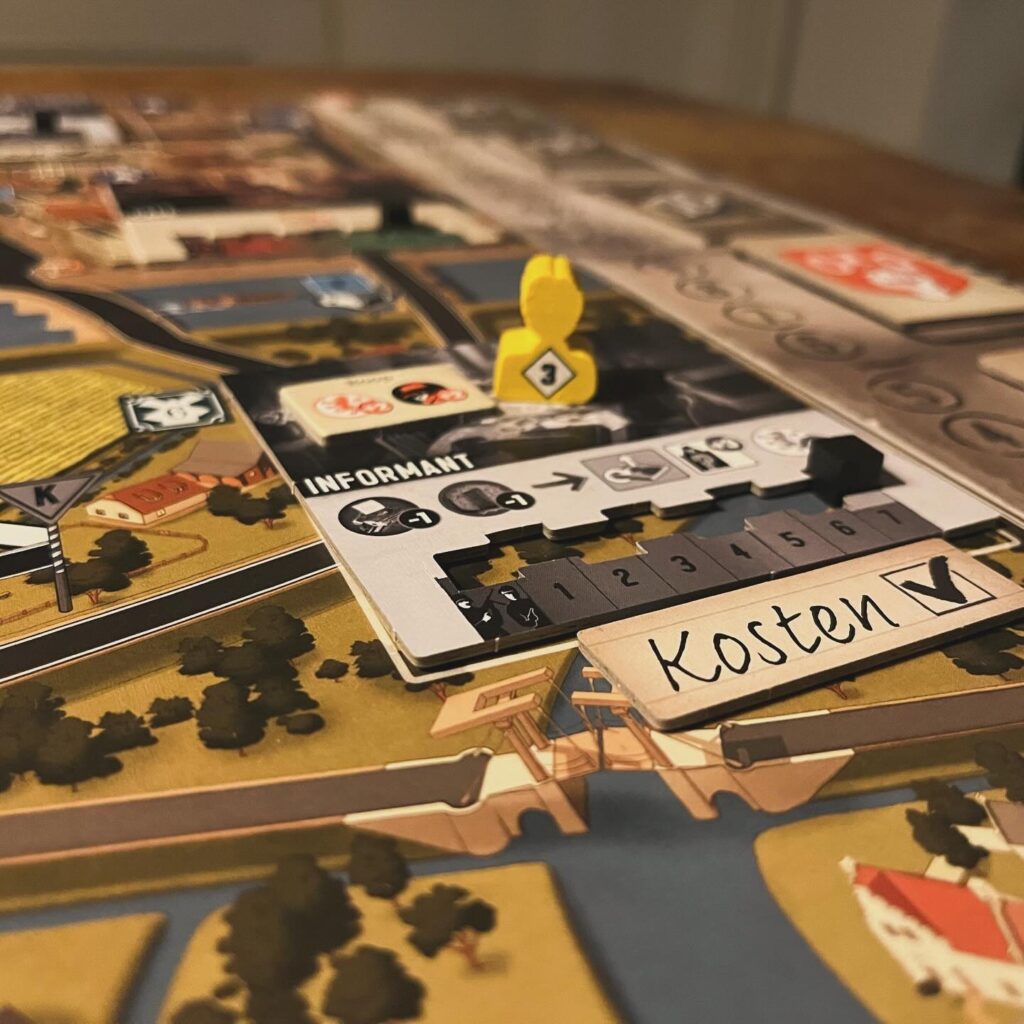
After players take their actions, the night period begins. During this period, there is a danger phase. The locations where players are located become more suspicious and security drops. The safety of a location drops based on a character’s alibi and the amount of resources that character carries. Should the security of a location drop below 1, a search takes place with unpleasant consequences. After this phase, soldiers and police start patrolling.
Verdict
Let me get right to the point. I think Nederlands Verzet: Oranje Zal Overwinnen! (the Dutch title of Dutch Resistance: Orange Shall Overcome!) is one of the best cooperative games I have played in ages. This is due in a large part to the brilliant implementation of the theme. The gameplay and the various game elements literally ooze theme. You would almost think the game was conceived by a historian. This is the actually the case, by the way. There are all sorts of different historical aspects incorporated into the game, making you feel like you’re a part of the resistance.
There are a number of scenarios, but that doesn’t mean that after playing these scenarios you’re done with the game. The Halt! cards and the different character cards make the game varied and narratively strong. Players experience their own resistance story through the combination of these elements. The different scenarios make the game more complex and challenging.
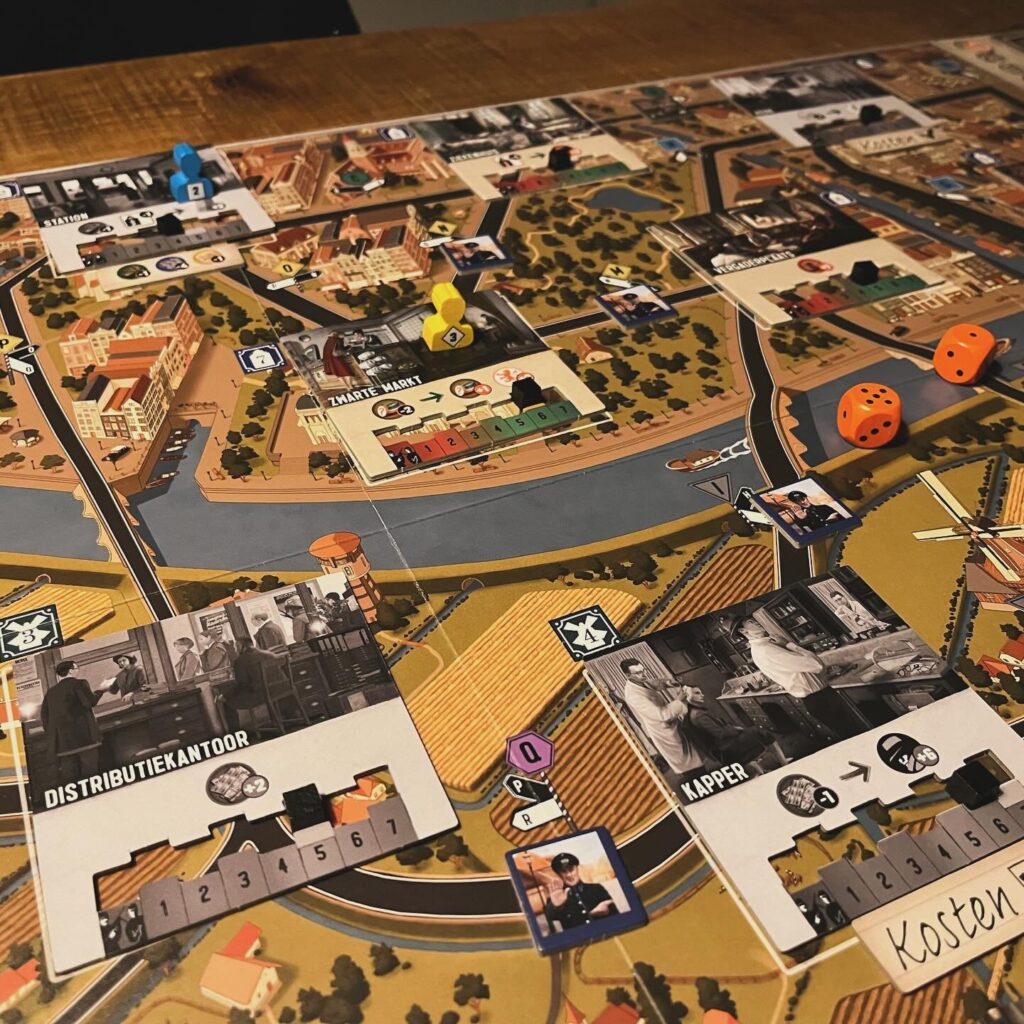
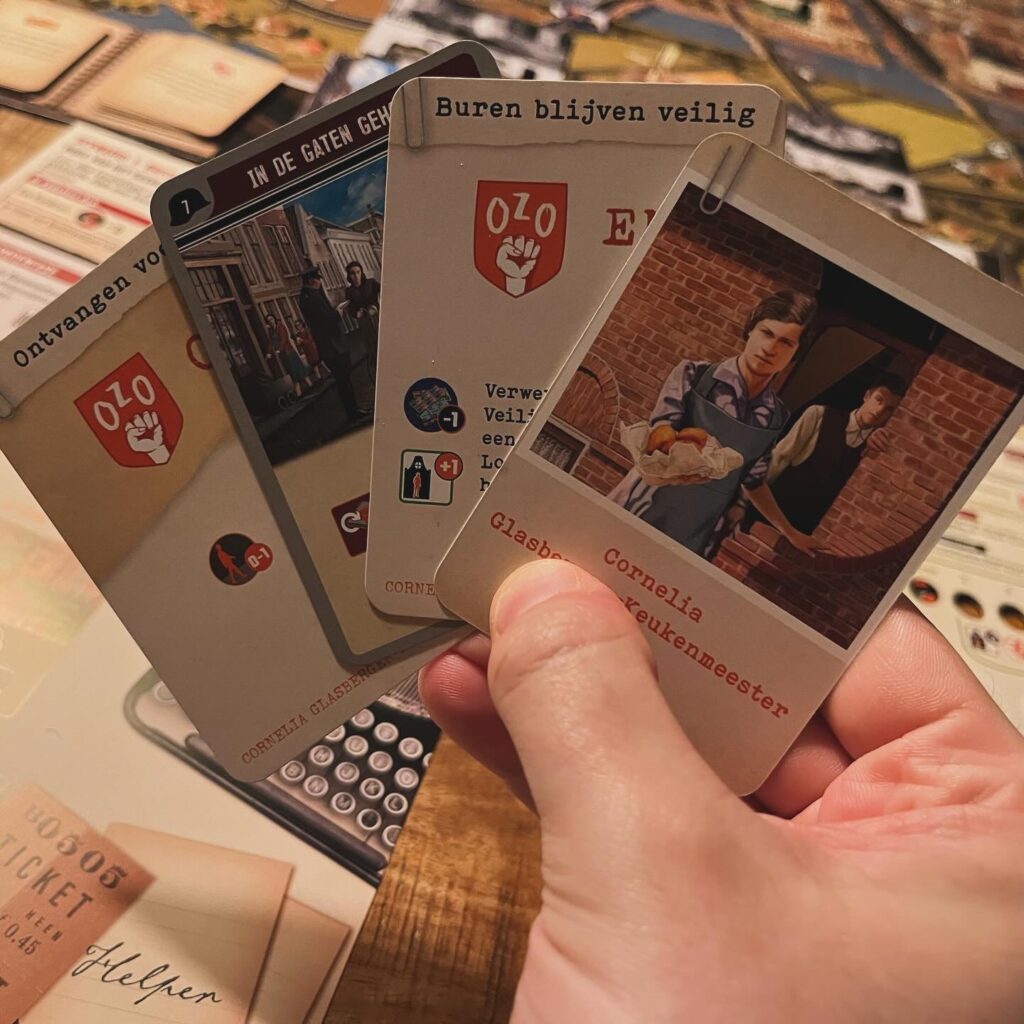
By the way, the game can be unrelenting, but war is unrelenting. A nasty dice roll or an unexpected patrol or Halt! card can thwart your plans considerably, but these unexpected elements are necessary to ensure that the game does not become a predictable puzzle. Because players have unique character cards, are not allowed to show their occupier cards to other players, and because of the Halt! cards, players must make their own choices, preventing any one player from taking control of the game. This is something that is often a risk in other cooperative games.
Orange Will Win is a tribute to the resistance, educational but above all a strong thematic and entertaining game.



